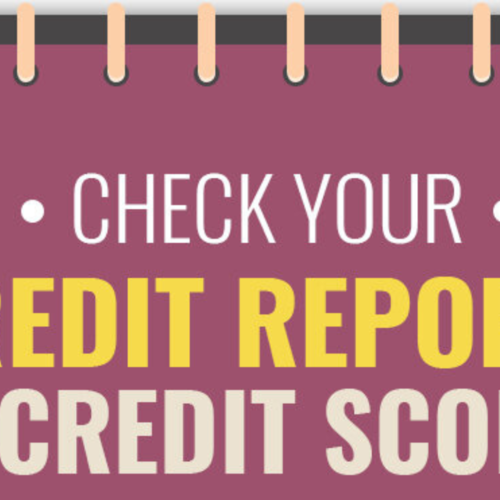Purchasing a home in the Bay Area can be a significant financial undertaking, especially when it comes to saving for a down payment. Many potential homeowners find themselves in a dilemma, unsure of how to gather the necessary funds to make their dream of homeownership a reality. One option to consider is borrowing against your 401(k), a retirement savings account offered by many employers. While this can be a feasible solution, it’s crucial to fully understand the implications and risks involved. In this comprehensive guide, we will delve into the various aspects of borrowing against your 401(k) and provide you with valuable insights on how to make the most of this option while minimizing potential pitfalls.
Section 1: Understanding the Pros and Cons of Borrowing from Your 401(k)
The Advantages
Borrowing from your 401(k) for a down payment on a home in the Bay Area comes with several advantages. Firstly, by borrowing from yourself, you are essentially owing money to your future self instead of a financial institution. This can provide a sense of financial control and peace of mind. Additionally, the application process for a 401(k) loan is typically quicker and simpler compared to traditional loans, as it does not require a credit check. Interest rates on 401(k) loans are often lower, making it a cost-effective option for accessing the funds needed for a down payment. Moreover, borrowing from your 401(k) does not impact your credit rating, providing you with flexibility for future financial endeavors.
The Risks
While borrowing against your 401(k) can be advantageous, it’s essential to consider the associated risks. One significant risk is the potential tax implications if you fail to make timely loan payments. If you default on your loan, the outstanding balance will be considered a distribution from your account, subject to income tax and potentially a 10% withdrawal penalty if you are under the age of 59 ½. Another critical risk to consider is the opportunity cost of borrowing from your retirement savings. By taking a loan, you miss out on the potential growth and compounding interest on that money, which can have a significant impact on your long-term savings. Additionally, some employers may restrict or disallow new contributions to your 401(k) while you have an outstanding loan, potentially impacting your retirement nest egg.
Section 2: Assessing Your Financial Situation
Before deciding to borrow from your 401(k), it’s crucial to assess your overall financial situation. Consider the following factors:
- Monthly Income: Evaluate your monthly income to ensure that you can comfortably cover your mortgage payments along with other homeownership expenses such as utilities, maintenance, and insurance.
- Budgeting: Review your budget to determine if you have enough disposable income to make regular loan payments while still meeting your other financial obligations.
- Job Stability: Assess the stability of your job and the likelihood of any significant changes in employment. If there is uncertainty surrounding your employment, relying on a 401(k) loan for a down payment may not be advisable.
- Savings: Evaluate your existing savings and determine if there are alternative sources of funds for a down payment, such as personal savings or assistance from family members.
Section 3: Understanding the Mechanics of Borrowing from Your 401(k)
Loan Limits
401(k) plans typically allow participants to borrow up to 50% of their vested account balance or $50,000, whichever is less. However, it’s essential to borrow only what you need for your down payment and avoid taking on unnecessary debt.
Repayment Terms
Once you have taken out a 401(k) loan, you will be required to repay it on a monthly or quarterly basis. Generally, a 401(k) loan must be repaid within five years, although some exceptions may be made for loans used specifically for a primary residence down payment. It’s crucial to understand the repayment terms and calculate the impact on your monthly budget.
Interest Rates
When borrowing from your 401(k), you will also need to consider the interest rate charged on the loan. While interest rates for 401(k) loans are often lower than those for traditional loans, it’s essential to compare the rates and assess the overall cost of borrowing.
Loan Origination Fees
Some 401(k) plans may charge origination fees for loans. These fees can vary depending on the plan, so it’s important to review the terms and conditions of your specific 401(k) plan.
Section 4: Weighing the Alternatives
Before making a final decision on borrowing from your 401(k), it’s crucial to explore alternative options for financing your down payment. Consider the following alternatives:
- Personal Savings: Evaluate your personal savings and determine if you have enough funds to cover a significant portion or the entire down payment. Utilizing personal savings may allow you to avoid the risks associated with borrowing from your retirement account.
- Down Payment Assistance Programs: Research local and federal down payment assistance programs that may be available to first-time homebuyers in the Bay Area. These programs can provide financial assistance or favorable loan terms to help you secure a down payment.
- Gift or Loan from Family: If feasible, consider reaching out to family members who may be willing to provide a gift or loan to assist with your down payment. Ensure that you have a clear understanding of the terms and any potential implications.
- Delaying Home Purchase: If your current financial situation does not allow for a comfortable down payment, consider postponing your home purchase and focus on improving your financial position. This can provide you with more time to save and avoid potential risks associated with borrowing against your 401(k).
Section 5: Seeking Professional Advice
When considering borrowing from your 401(k) for a down payment on a Bay Area home, it’s essential to consult with professionals who can provide personalized guidance. Consider the following experts:
- Financial Advisor: Speak with a financial advisor who specializes in retirement planning and can help you assess the potential impact of borrowing from your 401(k) on your long-term financial goals.
- Real Estate Agent: Consult with a knowledgeable real estate agent who is familiar with the Bay Area market and can provide insights on alternative financing options and down payment assistance programs.
- Loan Expert: Seek recommendations from your real estate agent for loan experts who specialize in down payment assistance programs or have experience working with clients who have borrowed from their 401(k). These experts can provide valuable advice and help you navigate the loan process.
Section 6: Making an Informed Decision
After carefully considering all the factors, risks, and alternatives, you will be better equipped to make an informed decision about borrowing from your 401(k) for a down payment on a Bay Area home. Remember to weigh the advantages and disadvantages, assess your financial situation, and seek professional advice before proceeding.
Conclusion
Borrowing from your 401(k) can be a viable option for financing a down payment on a home in the Bay Area. However, it’s crucial to weigh the risks and benefits, assess your financial situation, and consider alternative financing options. By making an informed decision and seeking professional guidance, you can maximize the use of your 401(k) while minimizing potential long-term consequences. Remember, purchasing a home is a significant financial commitment, and it’s essential to carefully evaluate all your options before proceeding.





